Welcome to a very special episode of Burnt Toast!
We recorded this on December 3, at Seattle’s Town Hall, with an absolutely delightful crowd. This was the official end of the Fat Talk book tour, but I promise it’s not a regular book promo conversation. Because it’s Angela Garbes and me, talking about books sure, but also talking about bodies and big life transitions and other good stuff.
Both of Angela’s books, and mine, are available in the Burnt Toast Bookshop!
Don’t forget, you can always take 10 percent off that purchase if you also order (or have already ordered!) Fat Talk from Split Rock Books! (Just use the code FATTALK at checkout.)
If you’re enjoying the podcast, make sure you’re following us (it’s free!) in your podcast player! We’re on Apple Podcasts, Spotify, Stitcher, and Pocket Casts! And while you’re there, please leave us a rating or review. (We like 5 stars!)
Episode 126 Transcript
Virginia
Welcome to the first ever live recording of Burnt Toast!
This is the podcast about anti-fat bias, diet culture, parenting and health. I’m Virginia Sole-Smith.
Angela
And I’m
. That’s right. We’re here in Seattle, Washington! Live at Town Hall!Virginia
Angela is my co-host, and hype woman, tonight because we are in Seattle! Thank you, Town Hall. Thank you all, for coming out. Let’s do this! Let’s make a podcast!
Angela
So as you can see, there’s a large projection of Virginia’s book Fat Talk here. We’re here to talk about Virginia’s book, Fat Talk: Parenting in the Age of Diet Culture. We’re also going to talk about bodies and we’re going to talk about big life transitions—but we’ll put a little pin in that for the moment.
I had the pleasure of reading Fat Talk before it came out, and I remember being so blown away by it. I think in the blurb I wrote like, “Virginia Sole-Smith is a visionary.” But it’s true because Virginia took so many disparate things that I understood about American culture and about bodies and about diet culture and put it all together. One of the things that I was just saying—we had dinner before this. We were talking about the male gaze—you can boo for things like that.
Virginia
It might come up a few times.
Angela
But I was like, when we talk about the male gaze, we’re talking about American culture in many ways. We’re talking about diet culture. And what Virginia helped me see when she threaded together beautifully through research and reportage is that American culture is diet culture is white supremacist culture is anti-fat culture is all of these things. When we talk about one, they are inextricably linked. No matter how much we would like to separate them out, and the powers that be would like us to separate them out, or not talk about them at all, they’re so deeply linked. And she presented that in such a way that I was like, “Well, there’s no turning back now.” I see it differently.
The other thing that I love about this book is, it’s about parenting. And I’m the mother of children, but I desperately needed this book for myself! There’s so much that we, as the grownups, have to unlearn. There’s a lot of parenting and reparenting that we have to do for ourselves around diet culture and anti fat bias. Virginia’s work has been very meaningful to me. I was so honored that she asked me to read it. I was so honored when Virginia blurbed my book, and I asked her to blurb mine after. I think we have kind of cute meeting story, actually. We met in our Instagram DMs.
Virginia
I think I slipped into your DMs! Or did you slip into mine?
Angela
You slipped into mine. I had posted a picture, when I was working on Essential Labor: Mothering as Social Change, of The Eating Instinct: Food Culture, Body Image, and Guilt in America, which is Virginia’s first book—which nobody should sleep on! Shout out for The Eating Instinct, real ones know! It was a huge part of my research process and informed several chapters of my book. So I had posted, you know, like, behind the scenes process shot, and one of Virginia’s friends sent the post to her.
Virginia
And was like, “OMG, Angela Garbes read your book!” And it was a really big deal because Angela is a really big deal.
Angela
So then we had a real meet cute. We’re like, “No, I’m a huge fan.” “No I’m a huge fan.”
And now we get to be on stage!
Virginia
Mutually fangirling.
Angela
In our year of becoming friends.
Okay, so we are going to talk about BLTs—big life transitions. I just coined that right now.
And one of the hugest transitions—and I know this—as a writer, is when you transition from being in intense research and writing mode, which is private. I mean, you have a podcast and a newsletter, but it’s very intense, private work. Sometimes I feel like until the book is out, I’m just sitting on my ass. That’s all I’ve been doing. Just thinking and having thoughts.
What is it like to have published a book that was an instant New York Times bestseller? Which, we don’t live for measures of success! But that’s a pretty big one, right? Any writer who tells you it’s not a big deal is lying. So it’s been an intense time of having that come out. I’d love to know, what does it feel like to have been living with this book out in public to have it be a transformative book for your career and what has the transition to book promotion been like?
Virginia
Well, some really good advice you gave me back in the spring was: You won’t really know how to answer that question for three years. So I don’t totally know.
But I mean, it’s been a really surreal year, for a lot of reasons. And a lot of that was going from being very private with this conversation, to being very public with this conversation, which of course was the goal of having the conversation—for other people to come to the conversation.
And obviously, while researching the book I was pretty sure anti-fat bias was a thing. But publishing a book about anti-fat bias and going out to talk about it as a fat person really confirmed for me that anti-fat bias is alive and well! Mostly for the men who email and send me DMs and have comments.
And, you know, I was prepared for it—
Angela
I think anyone who writes about fatness…
Virginia
And is a woman on the Internet…
Angela
You expect a certain amount of feedback and trolling, I guess.
Virginia
But you’re still somehow surprised by how personal it can feel at times. Which isn’t to say it’s always upsetting! Like, Steve on the internet telling me that he doesn’t find me attractive is not something that’s keeping me up at night. The DMs that are like, “but men don’t like fat chicks.” I didn’t actually write this book for them? So it’s okay. I’m not looking for that.
And look, although I do identify as a fat person and have lived for the last decade or so in a fat body, I was a skinny kid and then a thin younger adult, through intensive dieting efforts, not through genetics. So I grew up with a lot of thin privilege, which is a concept I talk about in the book. Thin privilege is the experience of the world as being built for your body. You fit into the seats on airplanes, the chairs here are supporting your body. You’re not worried when you go to an event like this, will the chair hold me?
And I’m still what’s called small fat, which is on the lower end of the plus side spectrum. So there are a lot of ways that being fat doesn’t negatively impact my daily life because I’m not experiencing the constant oppression that folks in bigger bodies are experiencing.
But going out as a Public Fat Person kind of inches you a little closer to that experience. So it gave me a firsthand appreciation of: This is what we’re asking fat people to navigate all the time without making them New York Times bestsellers. Just because they live in fat bodies, they are going into doctor’s offices unable to access health care. They’re being turned away and told to lose weight before they’re given fertility treatments or other basic medical care. They’re earning less at jobs. And for our kids in schools, they’re experiencing bullying and discrimination on a daily basis. So yeah, it really just drove all that home, thanks to Steve on the internet.
Angela
Yeah, thanks Steve.
Obviously you did a lot of interviews, including Fresh Air with Tanya Mosley. But you told me about one, I’m assuming it was local news?
Virginia
No, it was WGN, Chicago Morning News. It was a live TV interview for the book and the thin white male news anchor audibly sighed before he could talk to me. He was like, “It sounds like you blame parents for being concerned with their kids’ health?” He was so upset to have me there.
Angela
People really don’t want to hear this stuff.
The average size of females in America is a 16 or an 18, right? There is this idea of the standard of beauty, which is thinness, which is whiteness, like, we’re coming for you. That was a construct and it’s falling away.
Virginia
In the book, I unpack everything that’s wrong with the BMI, but yes, around 60 percent of Americans have an overweight or obese BMI. So in terms of bias, this is everyone. This is not a tiny, marginalized group of people who, even if it was tiny, wouldn’t deserve the treatment they get, of course. But like, this is everyone.
Angela
This is the majority of the population.
Virginia
We can’t pretend it doesn’t exist. This is humans in bodies.
Angela
So we spent some time on Steve on the internet. But by and large, the reception and the process of being out in the world with this book is, I’m hoping, has been positive.
Virginia
I get teary just thinking about the emails I’ve gotten from parents saying this helps me think about how to keep my kids safe in the bodies that they have, how to advocate for them at the pediatrician’s office. It is marketed as a parenting book, but people saying “I don’t have kids, but this is helping me understand stuff that I experienced in my own childhood.”
One person said to me, “For so long, I understood my body as a problem, that it was my job and my responsibility to make myself fit in as opposed to understanding this is a whole system that wasn’t built for my body. And that’s a systemic problem.”
Even more exciting to is hearing from doctors, hearing from medical researchers saying, yes, you’re right, we have not been paying attention to the impact of anti-fat bias on people’s health. When we are studying diets, we are never controlling for the fact that when we’re documenting health benefits from weight loss, we’re never documenting the fact that if you lose some degree of weight, you will experience less anti-fatness. And that might be some of the reasons that your health appears, quote unquote, better, right? Because the world is now treating you differently, because suddenly you’re able to access the health care you weren’t able to access before. It’s opening doors, and maybe that’s the problem. Maybe it’s not how do we make everyone thinner so that they can be treated better? Maybe we flip that a little bit.
Angela
I mean, that’s really a dream, as writers who work in this space of service journalism, but also wanting to give voice to these things, and then be like, hey, this is going on, this is important. This is significant. That feeling of, I don’t know, sometimes I feel like, I’m part of changing the cultural conversation. But that’s so nebulous. Like, what is that? But hearing from someone like that, it’s small, but it’s significant. That idea of change happening within those institutions is huge.
Virginia
If we can change the way weight and health get studied, to make sure any study on weight and health has to examine the presence of weight stigma and the impact on people’s health. They have to look at when people go on diets and lose weight in the short term and you get excited because their biomarkers improve, what happens to them in five years when the weight has been regained, both in terms of physical health, but also in terms of things like disordered eating and increased rates of eating disorders.
None of that is getting tracked most of the time because of all of this baked in bias that says, well, fat people must want to lose weight that must make them healthier.
Angela
I’m thinking about when I wrote my first book which was about pregnancy and why don’t we know anything about pregnancy? Why hasn’t it been studied? The idea that just having a fat body is like an aberration, not just a variance of a body or just having a different body. I learned this when writing Like a Mother that it wasn’t until 1993 that Congress passed a law saying that if you receive funding for clinical trials from like the federal government, which is most clinical trials and anything in a research based institution, you have to include females and people of color.
Our very definition, not even just of health and wellness, of like what a human being is, doesn’t include most of us who are here. We’re up against really nothing less than that. So it’s really heartening to hear about change.
Virginia
Most studies that are done on anorexia nervosa, or actually most eating disorders, use BMI cut offs when they screen for applicants. So people with a BMI above 25, which is the cutoff for the “normal” range, don’t get included in the study. Because they think that fat people don’t get eating disorders. So then we have no research on the fact that actually that happens quite a lot. Because when fat people engage in disordered eating relationships, doctors are likely to congratulate us, ask us to do it more, ask us to go further with it. That bias, those are people’s lives we’re talking about. One of the most deadly mental health conditions.
Angela
Okay, do you want to talk about our our own big life transitions and how our bodies are doing with that? Because it takes a little bit of what’s hard and what’s good and what is just showing up in our vessels every day.
We’ve continued throughout this year, with lots of text messages and DMs about these changes that we’ve made in our life, which is that I am coming up on one year of sobriety. I made that change for a number of reasons. One being that I realized I was an alcoholic. But so that’s big. I’m 11 months sober. And there are so many changes that show up in my body.
And Virginia’s big news, if you don’t know—I’ll let you say. What’s going on in your life, Virginia?
Virginia
Oh, I’m getting divorced. So that’s a big change. You can clap! That’s right, you can clap that one, too. Thank you all for not just immediately going awwww. It’s good, it’s a hard thing. But a good thing.
Angela
So I’d like to ask you, the experience of separating and getting a divorce and being in the process of that—how does your body feel in that? Where do you see that showing up?
Virginia
I’ve talked about this a little bit on the podcast already, but there has been this real freedom in how I feel about my body. I’m not going to talk negatively about my ex husband, who’s a really good guy and a good dad. But suddenly my body is not in relationship to anyone else. I mean, it’s also being out of the early years of motherhood, where your body belongs to your children so intensely.
Angela
I think that’s a huge piece of it.
Virginia
We don’t talk enough about that.
Angela
My youngest child is now five and she and I are still very close, but it’s different. It’s just different. I’m not wiping anything anymore. There’s a lot less contact with fluids.
Virginia
I’m allowed to pee with the door closed, which feels big. This is an established thing now, that company is not welcome.
Angela
So you have freedom from your children.
Virginia
There’s just this added layer, which is really interesting. It wasn’t immediate. And I think at first—this was the male gaze thing we were talking about—I was very aware of when I would be alone in my house, when my kids would be at their dad’s. The first few weekends, I felt like I was watching myself. I was observing my body still. Maybe my brain was like, well, no one’s watching you anymore, so I will. Like, someone should still be watching, right?
Because especially for women, this is how we’re conditioned, to always assume our bodies will be somewhat objectified and to self-objectify our bodies. This is diet culture, teaching us that even when you’re just existing in your home, just watching tv on the couch…
Angela
Somehow how you look still really matters.
Virginia
Some part of my brain had really bought into that, despite the fact that it’s been almost a decade since I was last actively dieting, and trying to make myself smaller. It helped me identify that there’s this way that I’ve still been feeling like I need to contain or control this aspect of my body. So that’s been really interesting.
I mean, the other piece that’s interesting is, if you get on DivorceTok—which I don’t recommend. But if you’re on TikTok, and you start getting getting fed divorce content, you’re going to come across the Revenge Body concept pretty fast.
Angela
Tell us more. There was an audible gasp.
Virginia
People had a big feeling about that.
So the Revenge Body is basically the idea that as soon as you get divorced, you need to start losing weight and be as hot as possible so that you can get your next man and also make your ex feel bad, I guess. And I just want no part of that. That’s not anything I’m interested in.
And what’s really insidious about the revenge body is that often the narrative is, I was so stressed out by my divorce that I started losing weight, isn’t that great. Shouldn’t I ride that train all the way?
Angela
Shouldn’t I ride that unhealthy train into the sunset?
Virginia
Correct. Like, “Thank God, I went through this trauma that caused me to lose weight and now I can keep losing weight.”
Angela
But—correct me if I’m wrong—isn’t part of getting a divorce so you can you can worry less about what that person thinks of you?
Virginia
I mean, one would hope. One would hope that would be a big part of it. But when trauma equals weight loss, we consider that a good thing. I’ve heard people say like, “Oh, when I got divorced, the weight just fell off me. I was so stressed out, I just couldn’t eat, I couldn’t eat.”
I can eat still. I’m doing great with eating. I’m really doing it multiple times a day, like lots of different food groups. It’s going really well and I’m happy about that.
Angela
One might say, it’s helping you survive. And not just divorce, but life.
Virginia
Yes. When did we decide that not eating is the right way to respond to stress? That this is a desired effect of stress, that it would hone your body down. I want no part of that. I’m really happy I’m still eating.
I mean, I understand there is a spectrum of experiences, right? I’ve had friends get divorced and say “this appetite loss is super scary.” And they don’t want to be congratulated for that. But the other thing we often hear about fat people is like, what trauma caused that body? And so why are we congratulating people for achieving Revenge Body, but demonizing people who respond to trauma by eating?
Angela
We should be asking thin people that: What trauma caused this? What racist oppressive system caused this?
Virginia
Exactly. I think the bottom line is: Don’t talk about people’s bodies when they’re going through big life stuff. And maybe just don’t congratulate people’s bodies ever? Don’t assume that weight loss is always good. Don’t assume that weight gain is always bad.
Angela
That’s something I think about a lot as I get older. I used to have this fixed idea of what my body was—pregnancy will really do a number on you with that, right?
Virginia
Turns out, nothing is fixed.
Angela
But now I’m always like, oh, like, I’ve seen my friends go through this. Our bodies change all the time for different reasons. And now that I’m in this nebulous perimenopausal zone, I feel like my body is changing in ways. And it’s like, it’s always meant to do this.
Virginia
It’s constantly meant to do it.
Angela
So the idea of tying your body size to any sort of reflection of how you are, is flawed from the beginning, right?
Virginia
I get into this in the book because the narrative we give kids about puberty is really rooted in anti-fatness. We basically say to kids, it’s going to be awful, your body is going to change. You’re not going to know what’s going on. Like, it’s so bad. It’s so scary. Periods, boobs, whatever—all of this is terrible, and to be avoided. And we really idealize a skinny child’s body, which first of all, not all kids are skinny! There are lots of fat kids before puberty. Their bodies are great. But I remember this is a former skinny kid, being afraid of the puberty weight gain which was being built up as this huge, scary thing.
What if we reframed that narrative with kids, and said: Bodies are changing forever. You’re going to go through a huge amount of change in the next few years. And, you’re still going to be you. Some of it’s going to be weird. Some of it’s going to be great. Your experience is your experience.
Angela
Especially to young girls, to be like: This is your body helping you take up space in the world. Because that’s the other fear is you get too big. We’re like, “We don’t want the girls to get too big and demand things.”
Virginia
Well, it’s fear of fatness. It’s also fear of sexuality. Girls becoming more easily sexualized, there are just a lot of layers there. But it really comes down to, instead of saying there’s something really messed up about our culture that a grown man would hit on a fifth grader with boobs, we’re like, “How do we get this fifth grader with boobs to look as much like a little child as possible?” But: Some 10 year olds have boobs. That’s a normal way to have a body. And we make it the child’s problem, which then sets girls up to feel like I’m just in this race to control my body as much as possible, take up as little space as possible.
Angela
I’m just thinking about something that I think I heard or had this thought six or seven years ago that is something that I come back to all the time, which is: A body or a person is never a problem. I feel like I needed to hear that every day as a child. But I think about it now. It’s like, no, there are other factors, right? It’s never just you. It’s never inherently you. It’s not a thing that you need to fix.
Virginia
And I think this is the number one message I hope anyone who either is a parent or works with kids in any way takes away from the book and that I hope any kids who read the book at some point takeaway. We want kids to understand their body is never a problem to be solved. Your body is to be trusted, for kids in all body sizes. This isn’t like, asterisk, as long as you stay thin.
And the problem is is right now so many of us, because of the culture we live in, the water we’re all swimming in, we’re always attaching an asterisk. We’re putting these conditions on who’s allowed to take up space, who’s allowed to feel safe in their bodies who’s allowed to love their bodies. That’s the fundamental thing we need to change.
Angela
I want to go back to this idea that your body is just for you. Does that freedom feel like relief? Does it look like sweat pants on a day to day basis?
Virginia
For sure, sweatpants.
It’s a thing I didn’t realize I was missing, you know? So I don’t even know exactly what it looks like yet. But I am really enjoying the idea that it is just for me, that there is no external gaze on it. I mean, other than all of you right now, I guess.
But when I’m not on a stage, I’m enjoying—I was going to say being invisible, but I don’t mean I want to be invisible. But the privilege of a little bit of invisibility, I guess. I like being past a stage of life where walking down the street—it’s a nice thing about middle age, that you’re no longer constantly receiving feedback from people.
Angela
No longer even being perceived by people.
Virginia
Right. So the lack of perception is obviously rooted in ageism and terrible, but also sort of nice sometimes.
Angela
So for me, I’m going to start with positive: Since I got sober, my skin is really, really looking good. It’s really cool. I also just got back from vacation. I look in the mirror and I’m like, whoa. I’m not putting all this stuff into my system that is like, manifesting in my face. Like, it’s less puffy. It’s still very round, but it’s not as puffy. It’s not as pink and it makes me feel really good. It’s a totally vain, silly thing. And it’s not being perceived by anyone but myself in the mirror every day. It feels really good.
Virginia
It’s giving you joy.
Angela
The thing that’s interesting is I didn’t realize it until it didn’t happen. Like what you said, this is the water we swim in. It hadn’t occurred to me—I did not get sober to lose weight. But until I didn’t miraculously lose like 30 pounds, I was like, oh, I thought I thought I would lose weight.
Virginia
Well the trauma thing, right? We think, we’ll go through these stressful things and we just won’t be able to eat.
Angela
And actually, it was the opposite. So I was like, weight isn’t just falling off of my body. That’s interesting.
Also, it’s kind of a cliche, but it is true—I don’t know if it’s to replace the sugar that used to be part of drinking, but I’m definitely an ice cream with hot fudge every night guy now. I was like oh, maybe that’s also part of why I’m not losing weight.
Like, it’s a change in my body, but the idea that sobriety would, I would be associating that with weight or thinking about it. It was just really interesting to me the way I felt like I was playing myself. I was like, oh, like some little part of me thought this was going to happen and was slightly disappointed that it didn’t. I mean, I feel like I’ve dealt with it and there’s so many more pluses in my life, but…
Virginia
We like you being alive and all.
Angela
I like myself being alive. I like self compassion for myself, and all these other things. Also I know that sobriety is a huge investment in my health, mental and physical. This idea of wellness and how it’s just automatically on some level linked to thinness. Even I, who like, I reject this frame, I reject all of that, but it’s like, oh, it’s the call is coming from inside the house. It’s very humbling.
Virginia
I mean, think of the way we’re taught to approach weight and pregnancy, right? You’re going to gain this weight, not too much weight, but some approved amount of weight during pregnancy. And then you’re going to lose it of course. People say, “Breastfeed so the weight falls off,” which is a total bullshit myth by the way. We are taught to only embrace change if it equals thinness. There are a lot of transitions in life that we think should automatically lead to thinness, right? It is this insidious narrative that keeps coming up over and over again.
It’s helpful just to notice and not beat yourself up. You were programmed to think that way.
Angela
Yeah. Like I wanted this thing, and then I was like, well, I could stop eating ice cream. or…
Virginia
That sounds crazy.
Angela
I can spend my time thinking about this thing that I realized I wanted, or I could enjoy every good thing that’s happened. It is sort of similar to postpartum stuff, where there’s pressure that I think comes mostly from the outside, this idea to lose that weight.
If it was me, I’d be like, just leave me alone to continue my fourth trimester crazy period where my body is directly tied to another person’s. Like, just leave me alone. Let me have this body that’s just for that. But instead, you start thinking about external things.
Virginia
I feel like there’s some fantasy, too, that these changes will equal more time to work out, more time to be healthy in these very wellness culture-y ways. Even though the reality, as anyone who’s gone through a big life transition knows, is this is not the greatest time to adopt an aggressive new workout routine? Your days are probably chaotic and maybe more downtime and more rest would be nice.
But I think all of that is tied into hustle culture and productivity culture. That somehow, whatever changes we’re going through only get gold stars if you can also prove them with your body.
Angela
People who know me know that one of my lines is, “I work really hard and I’m never trying to work harder.” I grew up in a very, like, you have to excel, excel, excel household. And I’m like low=key lazy, I thought, like, compared to my family. I had a lot of shame around that. Now I’m like, I have a lot of output and I need time to recover and restore.
The first month of being sober, I was like, I am a baby, who is feeling all these things that I have purposely been trying not to feel and all I can do is cry and take naps like a baby. I did that a lot.
One thing that I realized going forward is part of my healing and taking care of myself is I’m resting and chilling out a lot more. I’m lucky at this particular place in my career and time that I can do those things. But I have struggled with feeling guilty. I’m like oh, I should be doing more. But actually, rest is really suiting me. And I feel like a season of rest is coming for you.
Virginia
I am available for a season of rest. I am clearing my schedule.
Angela
You’ll have a custody agreement where you’ll have some time by yourself for resting.
Virginia
Yes. Prior to the separation, I would get a weekend all to myself once or twice a year. It would be this rare thing. And maybe not everybody does this, but I would do this thing of like, all the things I don’t normally get time to do, I’m going to cram them into this weekend. I’m going to like have lunch with a friend and do some kind of shopping I can’t do with kids around and also clean out a bunch of closets and organize half the house. I did spend my first couple solo weekends organizing a lot of closets. And then I was like, what am I doing?
I mean, if you’re a stress organizer, you get it. There’s something very cathartic about doing that. But then I was just like, oh, wow, I’m really tired. And I don’t want to make plans.
Angela
I’m definitely not a stress organizer. Why would you do that?
Virginia
Next time I’m stressed, I’ll come to your house. It’s a weird compulsion and it’s often quite helpful? But yeah, then my kids would get back and I would be exhausted because I did stuff all weekend. I think again, it was the self objectification. I was like, I’ll judge me if I just like lay on the couch and watch Good Girls on Netflix.
Angela
What trauma caused this stress organizing?
Virginia
Forget anti-fatness. We need to get to the bottom of this.
Angela
It was sort of a rhetorical question for laughs, so don’t feel like you need to answer that. But if you want to go there, I’m here for you.
Virginia
I’m just like, what did cause it?? I’ll book it for therapy next week. Making a note, making a note. We’ll get into it.
Angela
Do you want to talk a little bit about dinner before we go to audience questions?
Virginia
Yes! So. Dinner is this thing that we have a lot of ideals and expectations around. And I think both of us have also been talking about how big life transitions can really fuck with your expectations of dinner and what you thought you needed to be doing.
Angela
I grew up in a household where both my parents worked full time, but we had dinner together every night. I realized that I bring all of that to dinner every night. Expecting a four year old and a five year old to be like, like you know what I mean?
Virginia
“I would love to sit at the table and discuss current events.”
Angela
I’m like can’t you just stay at the table?? And my husband is like, literally, they can’t.
Virginia
Literally they don’t have the motor skills, or coordination.
Angela
One of the things that I got I’ve gotten from your work is this idea of like, what is dinner about? What is our real goal for dinner?
Virginia
Yeah, I mean, it’s diet culture. That’s the goal. There is all this research that families that eat dinner together regularly, kids do better in school and have fewer substance abuse issues. There are all these benefits, but every media story you see about the importance of family dinner leads with less childhood obesity. That’s the big headline, always. Right there, you have like embedded into the premise that we are doing this to prevent fatness or correct fatness.
Some really interesting research I looked at for the book compared the family dinner experiences of thin kids and fat kids and they found that for thin kids, it really did give them more chances to talk to their parents and their confidence was higher and their grades were better in school and all these things.
But for fat kids, family dinner was a nightmare. Because it was like, are you sure you’re going to eat that? You already had enough pasta. How about you have the broccoli? No, no dessert tonight. It was this constant policing.
Angela
“You can only have dessert if you eat XYZ.”
Virginia
Right. You need three more bites of this and then you can have one small cookie. It was this constant policing and micromanaging of their bodies of their understanding of themselves. Like, “are you really still hungry?”
Angela
Can you trust yourself?
Virginia
So when I saw that study, I started thinking, okay, so there’s this embedded anti-fatness in the way we’ve emphasized the importance of dinner, of family dinner.
But there’s also a lot of classism, there’s a lot of other privileges involved, like having the time to cook, having the budget.
Angela
It’s also assuming a nuclear family, which is not how most people live these days.
Virginia
Yes, yes. I mean, so many different pieces of it started to seem really messed up, but particularly the body piece. I think, if we want our kids to grow up being able to say no in situations where it’s good to be able to say no. You know, I have two daughters, I’m thinking about teenagers, parties and dating, and whatever. I want my daughters to be able to say no and have that no respected. And if that means they get to say no to me at the dinner table about broccoli, I’m going to respect it so they know their no really matters. That is really worth them not eating some broccoli!
Angela
Alright, so a couple of questions are rolling in.
When we talk about all of these intersecting oppressions, it’s impossible to not see the roots of them all are capitalism. How can we fight to change the system of capitalism rather than just try and make it a kinder oppressive system?
Just starting off with a softball.
Virginia
Thank you for that very low stakes question. I feel no pressure whatsoever. I’m just going to solve capitalism now.
Angela
I’m just going to be clear. Virginia and I don’t know how to solve capitalism.
Virginia
It’s not really my expertise.
Angela
But I’m interested in this idea that I don’t want to just make a kinder oppressive system. I think that I feel really implicated in that because I think that’s something that a lot of us do. But, I mean, do you agree the root of this is capitalism?
Virginia
Yeah, I mean, at the root of this is a $60 billion industry that wants to sell you weight loss drugs, and diet books and plans and all the rest of it. I am really wary of making this anyone’s personal responsibility. I don’t think that’s a really useful model for social change.
I think we need systemic change. We need, as I talked about, the research models to be different. We need healthcare to be radically different, all of that.
Because right now, medical research is propping up the diet industry is propping up for profit health care. It’s all intertwined. So we need a big dismantling of all of this.
On a personal level, one thing I do is when I do want to exercise, I don’t give money to gyms anymore. Which is not to say there’s not there are great fat positive gyms, but not where I live. So they do not get my money because I no longer want to have the experience of like tuning out the anti-fatness all around me in that kind of experience. I’d rather give it to Lauren Leavell’s online workouts—shout out to Lauren.
Or any fat positive creator of color, or someone doing awesome work I’d rather support. I think it can be liberating to realize, I don’t have to keep paying for this in the ways that we are often unconsciously and deliberately paying for it.
The reason I’m really wary of saying this is all on us to make better consumer decisions is one of the key ways anti-fatness plays out is by limiting the options of fat people. Clothing, for example, is a huge one. And so I am not going to demonize any fat person who’s buying fast fashion because some companies that have really terrible workers’ rights practices and are a part of the problem in all these other ways are some of the few brands making their size.
Angela
Also, fast fashion is what’s affordable for people.
Virginia
It’s affordable. It’s really complicated but to whatever degree your privilege allows you to be making different choices, that’s a good place to start.
Angela
It’s worth just repeating, you know, there’s no ethical consumption in capitalism. Until we can dismantle the entire system, we’re all complicit and implicated in a certain way. And I think we can make better choices within that. It’s not on us to bring down the whole thing. I think making good choices where you can, making deliberate choices where you can, I think is really important.
We’re just going to do a few little quick ones here.
How would you discuss the health effects of ultra processed foods with a child without relying on anti-fat tropes?
Virginia
The thing to understand about ultra processed foods—this is a hard one to do quickly. If you want the deep dive on this, I did two whole podcast episodes on ultra processed foods. But the short version is to understand that a lot of the research on ultra processed foods is really in its infancy.
A lot of the reasons these foods get demonized is not because of their nutritional makeup. It’s because these are the foods that we associate with poverty and with people of color and fatness.
There is a lot of bias bound up in the fact that we are demonizing ultra processed foods as unhealthy. If you are on a budget, if you are very time pressed, if you need to eat something quickly and this is what’s available to you, an ultra processed food is a healthy choice. It is going to always be more healthy to feed yourself than to not feed yourself. It’s always going to be healthier to feed your child than to not feed your child. We really need to keep this in mind, especially those of us who are white and privileged, when we start talking about the problems with ultra processed foods. Because they actually serve a real good in the world. That’s not the same thing as me thinking the corporations that make them are good, I don’t.
So in terms of talking to kids: All foods are good foods. All foods play a role. There’s no reason not to eat any particular food unless you have a life threatening allergy to it. There’s no need to demonize these foods. So I don’t think it’s something you actually need to overly discuss with kids. You can just say, “It’s not good for us to eat the same foods all day, every day. We’d get sick if we ate broccoli for every meal, just like we’d get sick if we ate Cheetos for every meal.”
Angela
As you’ve been traveling and promoting fat talk, are there things that you’ve heard or that are helpful supports for fat parents raising fat kids? Any highlights to share?
Virginia
Well, I think finding community is super important and helpful. I mean, ideally in person community, but often online community is really important. The BurntToast newsletter is a really good resource. Sorry!
Angela
True, conveniently also true.
Virginia
But I think where fat parents often experience the most bias is when they go to the pediatricians office, because pediatricians have high levels of anti-fat bias. There’s a lot of judgment, if you have a fat kid and you’re a fat parent. It’s like a whole situation.
This may sound ridiculous, but bringing a thin friend to the doctor’s office helps a lot. Like my kids’ dad is straight-sized, he has had a lot more success talking to the pediatrician about why we’re not going to get on them about only eating beige foods or whatever. So don’t be afraid to bring in that privilege to back you up when you need it.
Angela
I bring my husband to anything financial. And anything like that involves forms and stuff because it just eases the tension. He’s a really nice white guy, it really helps.
I like this question a lot.
Any shifts in how you think about friendships? How has sobriety/fat positive lens/divorce impacted friendships?
Virginia
Friendships are the best.
just wrote a piece on her newsletter about platonically dating your friends.Angela
I think I talked about this when I was on your podcast. I had just come from a blissful weekend where I spent a lot of time in bed with a friend watching Love is Blind. It was wonderful.
Virginia
I think a big shift I’ve made as I’m now not partnered is understanding we have this hierarchy of relationships in our culture and heterosexual romantic partnership is the top of the pinnacle. When you’re doing that, you often end up leaving all these other relationships, even if you’re still invested in them. They’re just like getting less of you. So I really love that my friends are getting more of me now. And that I’m getting more of my friends.
Angela
I love my friends and my people, my community is everything to me. Like, I have found deep meaningful friendships with people who I met in Zoom rooms talking about sobriety. There are people with this particular disease that I have, that community of people, I’m just able to go there with them and talk to them. It’s been everything. I don’t think that sobriety is something that I could have done alone. I know it. There’s no way I could have done it. I needed people beyond the people who knew me just as much for myself because I didn’t want to feel, I didn’t have to feel ashamed or anything. I could talk to people who understood exactly what I was going through.
And you know, with other friends, it’s like, I could get it. It could be tiresome to talk about these things over and over. So yeah, you can always make new friends and find new wonderful friendships.
Virginia
I love that. And I was just going to add, I think for fat folks, having other fat friends is crucial because I think there is a shorthand and shared experience. I mean, I have a lot of thin friends and they’re great, but yeah.
Angela
Okay, this will be our last question before we move on into closing. And I’m sorry, we couldn’t get to all of the questions!
I have zero qualms about being the family member to interrupt racist, colonialist, sexist classes et al narratives. So why am I totally unable to talk with people I love, most notably my family, about the ways their anti-fatness harms not only me and my family, but them, too?
Virginia
This is one of the most common questions I get asked. And, you know, I don’t believe in an Oppression Olympics at all. Like all of these issues are hard and complicated and nuanced in their own ways. But fat is the bias that I think, well, we don’t have a lot of fat pride parades. Do you know what I mean? We’re still working on building fat pride. I mean, we’re doing it, we’re getting there. And there are decades of fat activism that have laid this foundation.
But this is one bias where we internalize it, and we put it on ourselves in a way that I think it can be easier to call out racism and be clear that this person is the bad guy for saying the racist thing. I am not bad. You know, I’m not saying that’s the universal experience. Obviously, I’m white and I don’t experience it. But you feel like “I can name this thing that I can see is unequivocally bad.” And when it comes to fatness, we’re much quicker to be like, “Well, I feel uncomfortable like this, but it’s probably my fault. And if I was thin I wouldn’t have to feel bad about this.” We’re just much quicker to buy into the system.
I think a helpful exercise is sometimes if you’re hearing a fat joke, or an anti-fat statement, and you’re like, “Should I call it out? Should I not call it out?” Ask yourself, “What if they said black? What if they said gay?” And if the answer is, “Oh, I would immediately name this.” Then this is the same. Recognize that you do the work here, too.
Angela
Yeah, I think it’s it is really, really hard. Like, that piece of the question that’s like, how do you tell someone this is harming you, too, right? I think that’s hard because people don’t want to hear it. People don’t want to believe it. It’s a hard thing to say. Like, you are lobbing these things at me. But actually, what does it reflect about you? That’s a really hard thing to say to family, and I think I don’t necessarily have an answer.
But I think that there’s that way of like, what do we have in common and what do we lose? It goes back to that question of what trauma caused your thinness? Right, like, maybe it’s just your body type or maybe it’s years of being controlled or years of trying to please people or, I don’t know. Thinking about the ways in which our fates are tied together.
Virginia
The reason I think it is also hard to call out is people are often saying deprecating things about themselves. Like, you know, “I’m so fat” or “I shouldn’t eat the cookie” or whatever it is. We often want to rush in and say, like, well, no you’re not fat, which is problematic, because now you’ve just—
Angela
Sometimes I’m like, no, I am a little. It’s okay.
Virginia
It’s great! And you don’t want to reinforce the idea that fatness is bad. But if you instead say something, like, “I really hate that our culture makes us feel like we have to apologize for eating.” That immediately shifts the blame over to the system and to the larger issue. Now you have formed an allyship with them. We are both experiencing this. And without you saying to them, “You, grandma, are experiencing anti-fatness.” She may not be ready for that. But you can say, “I really hate the way society makes us feel so bad about our bodies all the time.” And now you’ve just joined forces a little bit.
Butter
Angela
Okay, so I was getting dressed to come here. And I was like, Which of my cute outfits do I want to wear? And I obviously settled on a giant, one piece denim romper1 and this oversized blazer, because I’ve been thinking for the last few weeks about this idea. Someone was like, “oh, it’s really flattering.” And I was like: What do we mean, when we say flattering? Like “you should wear something that’s flattering,” like, “black is so flattering,” or like “a high waist is really flattering on you.” It means it’s thin. It makes you look thinner. It means it’s flattening, right?
Virginia
Literally. Flattening.
Angela
So I was like, I don’t think I like that. Flattering should be what makes you or what makes something look its best. And when I feel my best, I’m comfortable.
And so I’m in my oversize era. And I’ve decided that flattering can be oversized and drapey. And my butter, I guess, is sort of flipping that idea of what flattering is to being what do I think flattering is? And what makes me feel my best?
Virginia
I love that we both wore oversized denim.2 We were having a mind meld. We did not plan it. I did specify comfortable shoes, which we did both do, but but yeah, we did the oversized denim, which I love.
My Butter is very related. In packing for this trip—which is the last stop on the Fat Talk book tour. As I packed my suitcase to come here, I packed no jeans. I packed no heels. And I packed no underwire bras. This feels really big for me.
So. We are recommending comfortable clothes, that you can take up space in.
Angela
Yeah, it’s so flattering! Whatever that means to you.
Virginia
Well, thank you all so much. This was an amazing conversation.
Angela
And thank you so much to Town Hall and to Seattle for being here with us!
The Burnt Toast Podcast is produced and hosted by me, Virginia Sole-Smith. You can follow me on Instagram.
Follow Angela Garbes on or on Instagram.
Burnt Toast transcripts and essays are edited and formatted by Corinne Fay, who runs @SellTradePlus, an Instagram account where you can buy and sell plus size clothing.
The Burnt Toast logo is by Deanna Lowe.
Our theme music is by Jeff Bailey and Chris Maxwell.
Tommy Harron is our audio engineer.
Thanks for listening and for supporting anti-diet, body liberation journalism!
Sold out, but from this designer who has many other amazing jumpsuits.
Virginia’s dress. (affiliate link)

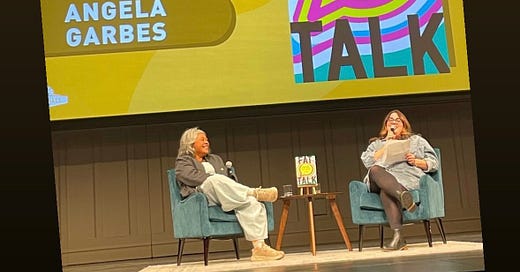







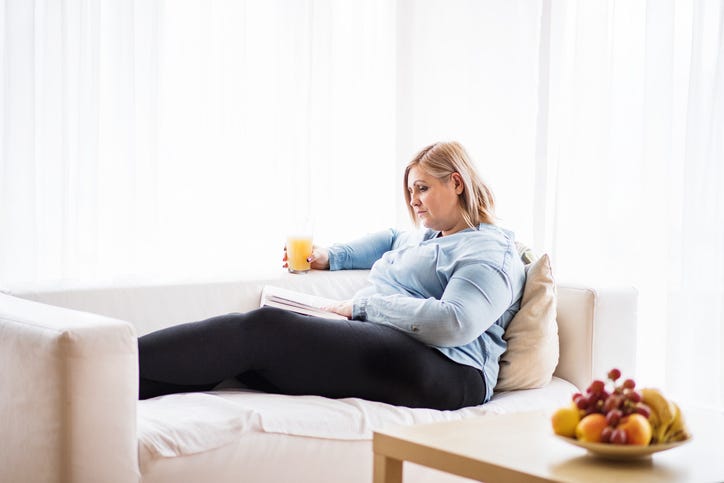

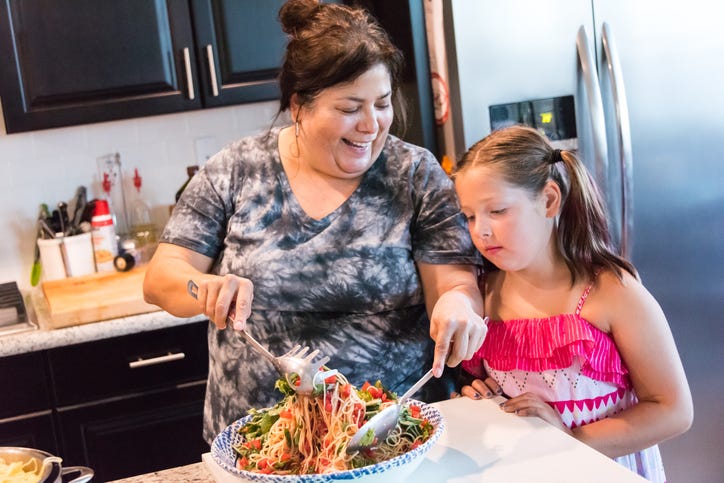
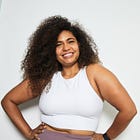

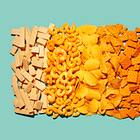

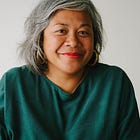
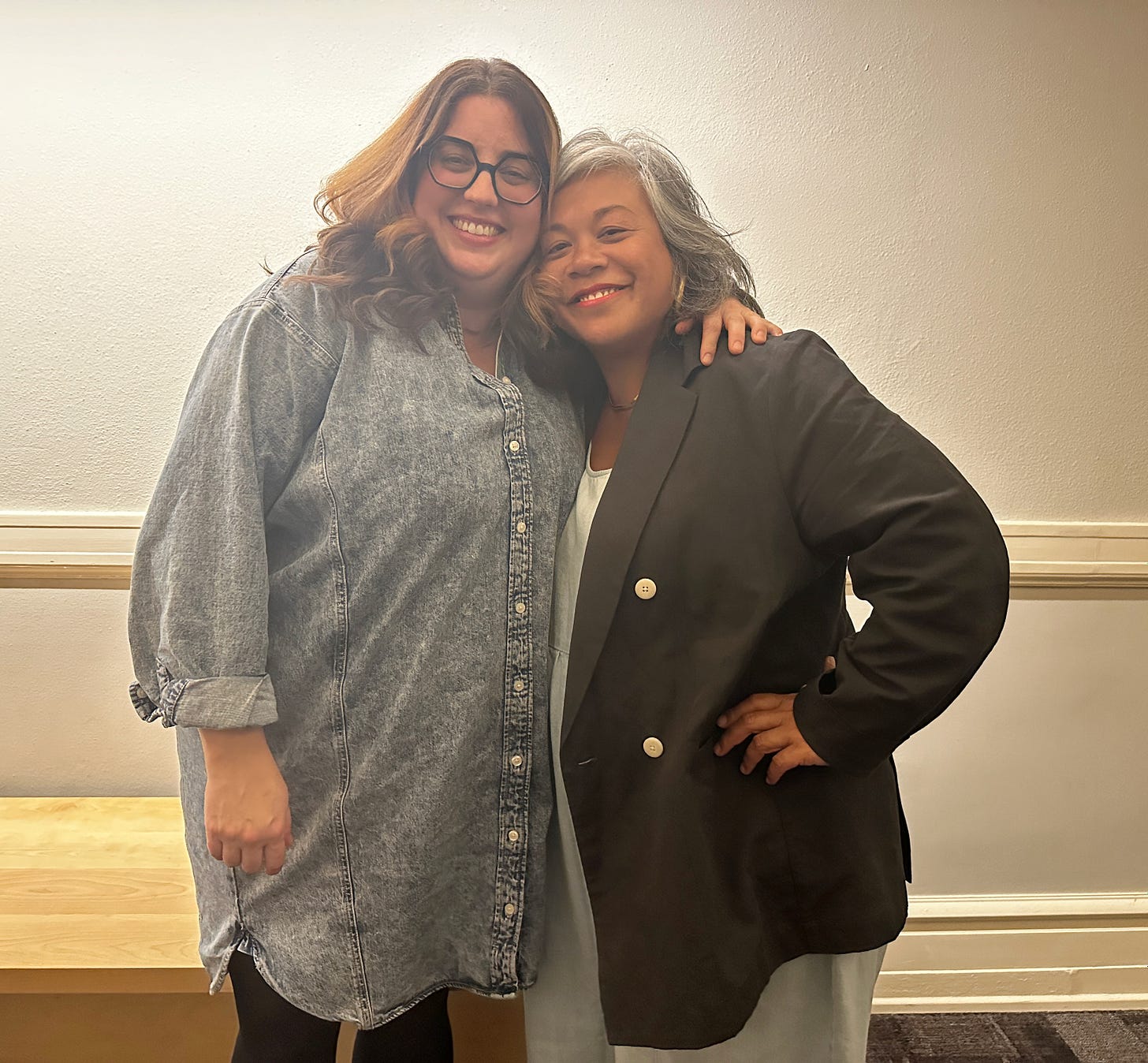










Share this post